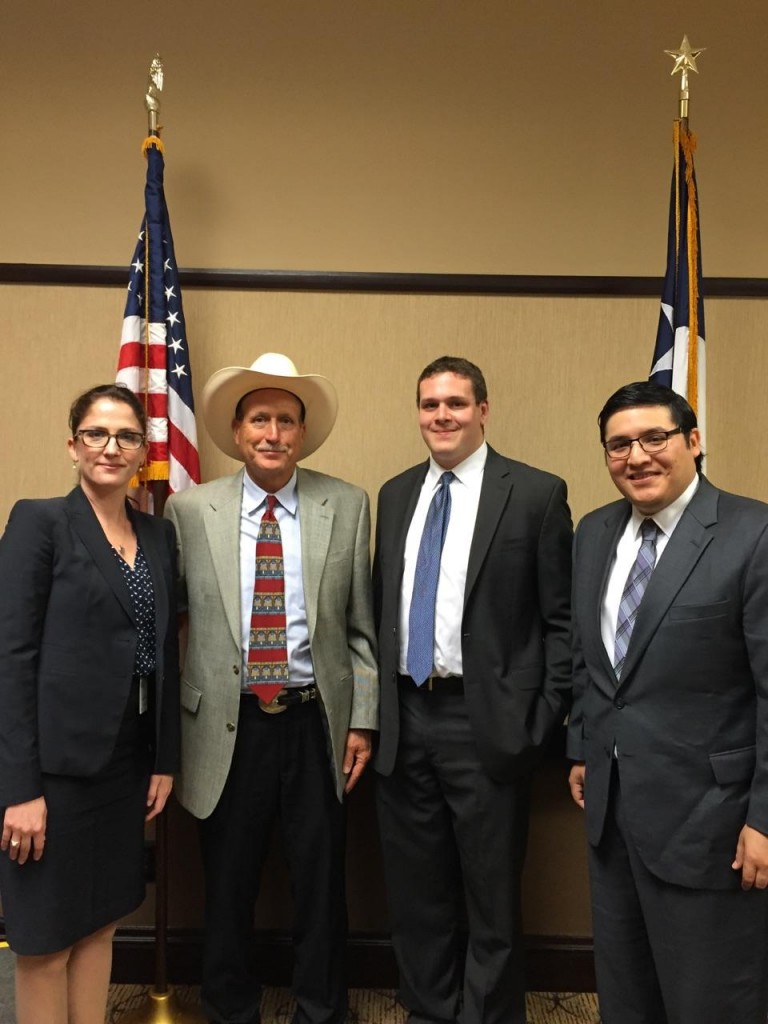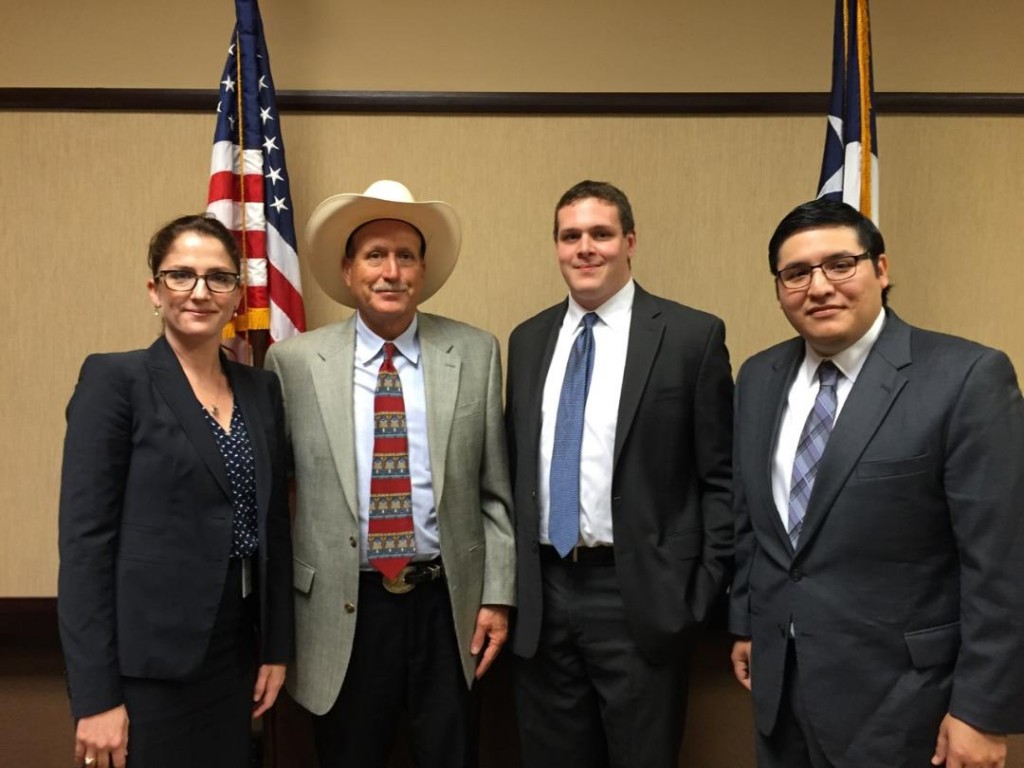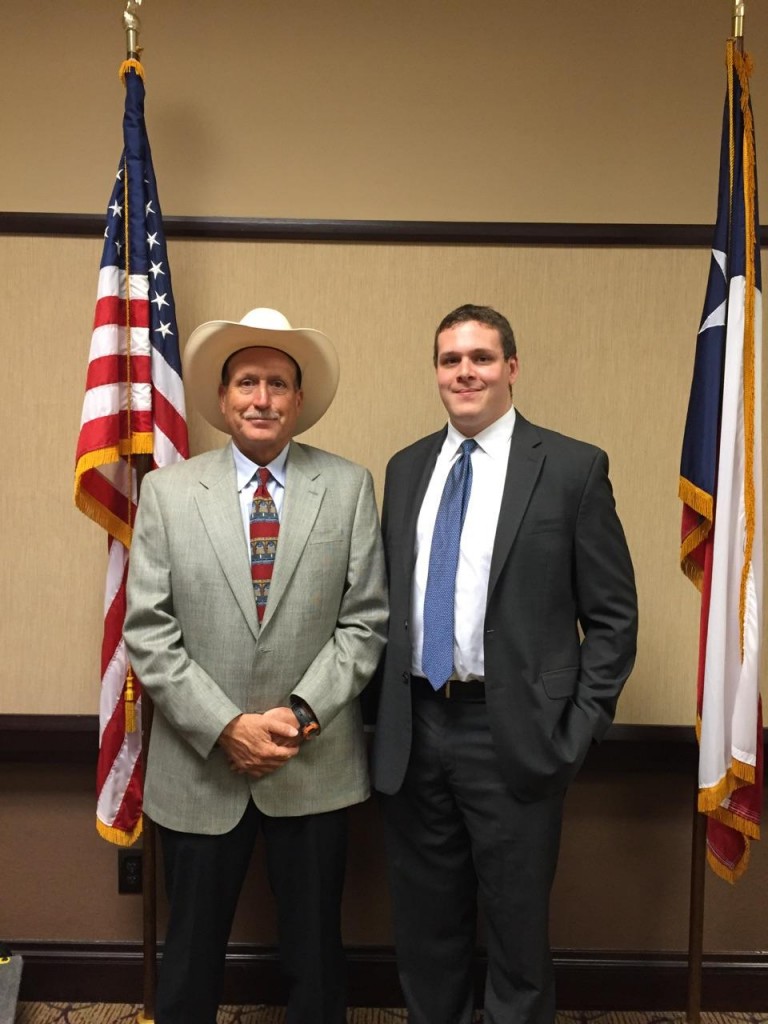On Thursday, May 7, I had the honor of speaking to the Galveston County Bar on their Law Day Celebration of Magna Carta. I spoke about the influence of Magna Carta on our Constitution, through the lens of the Supreme Court. Specifically, I focused on 8 provisions of Magna Carta that have been cited by SCOTUS. Below the video, I include some rough notes I took, listing all of the cases that cite the Great Charter. Enjoy.
Justice Brennan – “Throughout the . . . history of the Supreme Court of the United States, the bedrock principles of Magna Carta have had and continue to have, a profound influence over the justices’ deliberations.”
Comparison to Bill of Rights
- “the English Church shall be free, and shall have its rights undiminished, and its liberties unimpaired.”
- Amendment 1: “Congress shall make no law respecting an establishment of religion, or prohibiting the free exercise thereof.”
- Controversy between church and state over religious offices is hardly new. In 1215, the issue was addressed in the very first clause of Magna Carta. Hosanna-Tabor Evangelical Lutheran Church & Sch. v. E.E.O.C., 132 S. Ct. 694, 702, 181 L. Ed. 2d 650 (2012) (Roberts, C.J.).
- “No scutage [taxes] nor aid…shall be imposed on our kingdom, unless by common counsel of our kingdom…”
- Article 1, Section 8: “The Congress shall have Power To lay and collect
- Taxes, Duties, Imposts and Excises, to pay the Debts and provide for the common Defence and general Welfare of the United States…”
- “For a trivial offence, a free man shall be fined only in proportion to the degree of his offence, and for a serious offence correspondingly, but not so heavily as to deprive him of his livelihood.”
- Amendment 8: Excessive bail shall not be required, nor excessive fines imposed, nor cruel and unusual punishments inflicted.
- The precept that sanctions should be commensurate with the seriousness of a crime found expression in both the Magna Carta and the English Bill of Rights. Carmona v. Ward, 439 U.S. 1091, 1094, 99 S. Ct. 874, 876, 59 L. Ed. 2d 58 (1979)
- The principle that a punishment should be proportionate to the crime is deeply rooted and frequently repeated in common-law jurisprudence. In 1215 three chapters of Magna Carta were devoted to the rule that “amercements”8 may not be excessive. Solem v. Helm, 463 U.S. 277, 284, 103 S. Ct. 3001, 3006, 77 L. Ed. 2d 637 (1983) (Powell, J.)
- The British experience is particularly relevant since the Eighth Amendment was derived from the Magna Carta and the English Declaration of Rights. Spaziano v. Florida, 468 U.S. 447, 473, 104 S. Ct. 3154, 3169, 82 L. Ed. 2d 340 (1984).
- The only generally applicable limitations on the judge, when imposing the fine, were those contained in the English Bill of Rights and the Magna Carta. Union Co. v. United States, 132 S. Ct. 2344, 2362, 183 L. Ed. 2d 318 (2012) (Breyer, J., dissenting).
- “No constable or other bailiff …shall take corn or other provisions from anyone without immediately tendering money …”
- Amendment 5: “…nor shall private property be taken for public use, without just compensation.”
- “…no official shall place a man on trial upon his own unsupported statement, without producing credible witnesses to the truth of it.”
- Amendment 6: “In all criminal prosecutions, the accused shall enjoy the right…to be confronted with the witnesses against him…”
- It is sufficient for present purposes to say that by the time our Constitution was written, jury trial in criminal cases had been in existence in England for several centuries and carried impressive credentials traced by many to Magna Carta. Duncan v. State of La., 391 U.S. 145, 151, 88 S. Ct. 1444, 1448, 20 L. Ed. 2d 491 (1968) (White).
- “No freemen shall be taken or imprisoned…or exiled or in any way destroyed…except by the lawful judgment of his peers or by the law of the land.”
- Amendment 5: [N]or shall any person . . . be deprived of life, liberty, or property, without due process of law
- On the other hand, it is maintained on behalf of the plaintiff in error that the phrase ‘due process of law’ is equivalent to ‘law of the land,’ as found in the twenty-ninth chapter of Magna Charta; that by immemorial usage it has acquired a fixed, definite, and technical meaning; that it refers to and includes, not only the general principles of public liberty and private right, which lie at the foundation of all free government, but the very institutions which, venerable by time and custom, have been tried by experience and found fit and necessary for the preservation of those principles . . . was intended to secure the individual from the arbitrary exercise of the powers of government. Hurtado v. People of State of Cal., 110 U.S. 516, 521, 4 S. Ct. 111, 113-14, 28 L. Ed. 232 (1884) (Matthews, J.).
- “[T]he guaranties of due process, though having their roots in Magna Carta’s ‘per legem terrae’ and considered as procedural safeguards ‘against executive usurpation and tyranny,’ have in this country ‘become bulwarks also against arbitrary legislation.’ ” Poe v. Ullman, 367 U.S. 497, 541, 81 S.Ct. 1752, 1776, 6 L.Ed.2d 989 (1961) (Harlan, J., dissenting from dismissal on jurisdictional grounds
- Article I, Sec. 9: “The Privilege of the Writ of Habeas Corpus shall not be suspended, unless when in Cases of Rebellion or Invasion the public Safety may require it.”
- “that gradually the writ of habeas corpus became the means by which the promise of Magna Carta was fulfilled.” Boumediene v. Bush, 553 U.S. 723, 740, 128 S. Ct. 2229, 2244, 171 L. Ed. 2d 41 (2008) (Kennedy, J.).
- Whether insisting on the careful scrutiny of emergency claims or on a vigorous reading of § 4001(a), we are heirs to a tradition given voice 800 years ago by Magna Carta, which, on the barons’ insistence, confined executive power by “the law of the land.” Hamdi v. Rumsfeld, 542 U.S. 507, 552, 124 S. Ct. 2633, 2659, 159 L. Ed. 2d 578 (2004) (Souter, J.).
- To find that the Due Process Clause protects against this kind of fundamental unfairness—that it protects against an unfair allocation of public burdens through this kind of specially arbitrary retroactive means—is to read the Clause in light of a basic purpose: the fair application of law, which purpose hearkens back to the Magna Carta. Enterprises v. Apfel, 524 U.S. 498, 558, 118 S. Ct. 2131, 2164, 141 L. Ed. 2d 451 (1998). (Breyer, J., dissenting).
- While this provision of the amendment is new in the Constitution of the United States, as a limitation upon the powers of the States, it is old as a principle of civilized government. It is found in Magna Charta, and, in substance if not in form, in *124 nearly or quite all the constitutions that have been from time to time adopted by the several States of the Union. Munn v. People of State of Illinois, 94 U.S. 113, 123-24, 24 L. Ed. 77 (1876)
- Coke associated this principle [that the King could not change any part of the common law] with Chapter 39 of the Magna Carta, which he understood to guarantee that no subject would be deprived of a private right—that is, a right of life, liberty, or property—except in accordance with “the law of the land,” which consisted only of statutory and common law. Department of Transportation v. Association of American Railroads (2015) (Thomas, J., dissenting).
- And if a prohibition of slavery in a Territory in 1820 violated this principle of Magna Charta, the ordinance of 1787 also violated it; and what power had, I do not say the Congress of the Confederation alone, but the Legislature of Virginia, of the Legislature of any or all the States of the Confederacy, to consent to such a violation? The people of the States had conferred no such power. I think I may at least say, if the Congress did then violate Magna Charta by the ordinance, no one discovered that violation. (McLean, J., dissenting).
- “To no one will we sell, to no one deny or delay right or justice.”
- Sixth Amendment: “In all criminal prosecutions, the accused shall enjoy the right to a speedy and public trial.”’
- We hold here that the right to a speedy trial is as fundamental as any of the rights secured by the Sixth Amendment. That right has its roots at the very foundation of our English law heritage. Its first articulation in modern jurisprudence appears to have been made in Magna Carta (1215). Klopfer v. State of N.C., 386 U.S. 213, 223, 87 S. Ct. 988, 993, 18 L. Ed. 2d 1 (U.S. 1967) (Warren, C.J.).
- The requirement of speedy justice has been part of the Anglo-American common-law tradition since the Magna Carta. United States v. Lovasco, 431 U.S. 783, 800, 97 S. Ct. 2044, 2053-54, 52 L. Ed. 2d 752 (1977)
- The way the Canon advances those interests is intuitive: Judges, charged with exercising strict neutrality and independence, cannot supplicate campaign donors without diminishing public confidence in judicial integrity. This principle dates back at least eight centuries to Magna Carta, which proclaimed, “To no one will we sell, to no one will we refuse or delay, right or justice.” Williams-Yulee v. Florida State Bar (2015) (Roberts, C.J.).
- At Runnymede in 1215 King John pledged to his barons that he would “not make any Justiciaries, Constables, Sheriffs, or Bailiffs, excepting of such as knows the laws of land . . . .” Magna Carta Today, more than 750 years later, the Court leaves that promise unkept. I respectfully dissent. North v. Russell, 427 U.S. 328, 346, 96 S. Ct. 2709, 2718, 49 L. Ed. 2d 534 (1976) (Stewart, J., dissenting) (trial before non-lawyer police court judge).
- “If we, our chief justice, our officials, or any of our servants offend in any respect against any man, or transgress any of the articles of the peace or of this security, and the offence is made known to four of the said twenty-five barons, they shall come to us – or in our absence from the kingdom to the chief justice – to declare it and claim immediate redress.”
- Amendment 1: “and to petition the Government for a redress of grievances.”
- The right to petition traces its origins to Magna Carta, which confirmed the right of barons to petition the King . . . The Magna Carta itself was King John’s answer to a petition from the barons. Borough of Duryea, Pa. v. Guarnieri, 131 S. Ct. 2488, 2499, 180 L. Ed. 2d 408 (2011) (Kennedy, J.).
- The historical antecedents of the right to petition for the redress of grievances run deep, and strike to the heart of the democratic philosophy. Adderley v. State of Fla., 385 U.S. 39, 51, 87 S. Ct. 242, 249, 17 L. Ed. 2d 149 (1966) (Black, J.).


